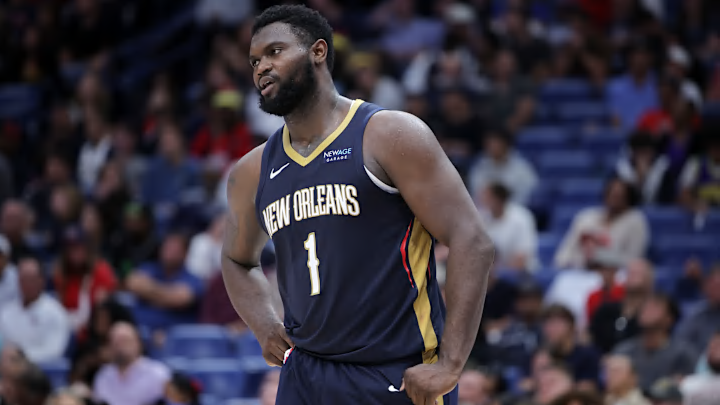In the constantly shifting landscape of the NBA, few stories have captivated fans like that of Zion Williamson. Once labeled a "generational talent" upon his entry into the league, he now finds himself in a precarious position with the New Orleans Pelicans.
With the team languishing at a dismal 5-24 and struggling to find consistency due to injuries, speculation is rampant about the future of their star players, including Williamson, as the Pelicans appear increasingly focused on retaining their young prospects Herb Jones, Trey Murphy III, and Yves Missi.
According to Marc Stein and Jake Fischer in a recent edition of The Stein Line, the Pelicans are reportedly willing to entertain offers for their star players, making them available as they shift their direction amid a season plagued by injury and disappointment.
The Toronto Raptors may not be playoff-bound themselves, but with a strategy that has historically revolved around reclamation projects, they could potentially take a calculated risk on Williamson, provided they navigate the complexities of his ongoing health concerns and contract status.
Should the Raptors trade for Zion Williamson and revive his NBA career?
Zion Williamson's ascent to stardom was anticipated to be meteoric after being drafted first overall in the 2019 NBA Draft. However, injuries and off-court drama have curtailed that trajectory. This season, Williamson has played in just six games due to a hamstring injury, a far cry from his career-high 70 appearances last year.
While the Raptors' front office must weigh the risks associated with acquiring Williamson, the allure of his raw talent can’t be overlooked. Toronto has a proven track record of resurrecting the careers of players who might be down on their luck.
Yet, the question remains: is it worth pursuing a player whose commitment to the game and conditioning have increasingly come into question? Williamson’s struggles with maintaining peak physical shape and focus have raised red flags throughout the league, making it vital for the Raptors to conduct thorough due diligence.
Trading for Zion Williamson carries more risks than potential rewards
Furthermore, adding Williamson to a roster that includes emerging talents like Scottie Barnes and his former Duke classmate RJ Barrett could create an enticing yet complex frontcourt dynamic. The overlapping skill sets might lead to spacing issues, especially in a league that increasingly prioritizes perimeter shooting. The allure of Williamson as a post player would need to be balanced with their existing roster's strengths, and the Raptors must ensure that team chemistry won’t be hindered by the influx of yet another interior-focused player.
Financial considerations are equally crucial when assessing a potential trade for Williamson. With a hefty price tag of nearly $40 million annually over a five-year, $198 million contract, the numbers may initially deter many suitors. However, it's essential to note the non-guaranteed nature of the final three years of his deal, contingent on his ability to stay healthy and on the court.
Given that Williamson played only 29 games during the 2022-23 season, this clause introduces a layer of complexity to discussions about his immediate future in the league and may motivate the Pelicans to accept a lower return in exchange for his unpredictable potential.
For the Raptors, this could present an opportunity to snag a once-coveted player at a time when his value has drastically dipped. Toronto could explore offering low-end players that match Williamson's salary like Bruce Brown, Chris Boucher, or Kelly Olynyk, combined with modest draft compensation, as a means to make the acquisition viable without compromising their core roster.
Could low-risk assets lead to a big reward in a hypothetical Raptors-Zion Williamson trade?
This trade could serve as a rejuvenating project akin to those the franchise is known for orchestrating. If executives believe they can manage Williamson’s health and foster his immense potential, swooping in while his stock is low may yield dramatic long-term benefits.
However, the Raptors must proceed with caution; nothing less than a shrewd, well-planned approach will suffice to harness the generational talent once pegged as the future of basketball and integrate him effectively into the team's structure. The stakes are high, and the path ahead remains fraught with uncertainty, but who arguably loves a challenge more than the Raptors' front office?
